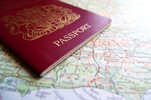Thai surrogate twins issue reveals Australia rejects Downs Syndrome migrants

Thai surrogate twins issue reveals Australia rejects Downs Syndrome migrants
The original story recounted how an Australian couple had paid a Thai woman for surrogacy, rejecting one of her new-born twins when it was discovered that the baby boy suffered from Downs Syndrome. Apart from an international outcry and a projected change in Thai laws on surrogacy, the OZ immigration department is now outed as having rejected Downs Syndrome migrants from 1958 onwards.
Catherine McAlpine, chief of Downs Syndrome Australia, told the press that the country’s Immigration Act and those who enforce it have excluded Downs Syndrome migrants as they are considered to be a future burden on the taxpayer. According to Immigration, treatment and care is likely to cost more than the upper limit of AU$40,000 over a lifetime.
McAlpine considers immigration’s stance to be highly discriminatory, adding that many immigrant couples had fallen foul of the regulation when they became the parents of a Down’s syndrome child. One such, she said, a British midwife working in a Perth hospital and in the process of applying for residency, was initially denied after she gave birth to a Downs Syndrome baby.
The federal government is denying that its immigration rules exclude Downs Syndrome sufferers, stating that there is no actual law banning them but that health service costs must be taken into account when visas are granted. According to a government spokesperson, immigration health requirements do not exclude specific conditions.
Related Stories:
- Foreigners and expats condemn Thailand attractions dual pricing - July 14, 2020
- Thailand unwilling to extend amnesty for trapped expats - July 10, 2020
- How to deal with pandemic-related stress during lockdowns - July 8, 2020
- Spain issues new rules for British expat residents - July 7, 2020
- Expats in Thailand rethinking relocation due to the high baht - July 6, 2020
- Pros and cons of Thailand as an expat destination - July 1, 2020
- Stranded expats with Thai wives and families to return soon - June 18, 2020
- How are expats in Thailand coping with the uncertainty? - June 15, 2020
- Expats in Thailand denied the security of permanent residency - June 11, 2020
Latest News:
- Tips on a trouble-free relocation as an expat overseas - July 20, 2020
- Expats find peace in the covid-19 refuge of Dahab town - July 20, 2020
- Is Kuwaitization the unintended result of the oil price crash? - July 20, 2020
- Expats unhappy abut changes to Korean points-based visa system - July 17, 2020
- Chiang Mai and Bangkok no longer bargain locations for expats - July 17, 2020
- Expats in Malaysia still banned from overseas travel - July 17, 2020
- Vietnam welcomes expats to its safe, affordable lifestyle - July 16, 2020
- Asian tiger economies reach out to expats in Hong Kong - July 16, 2020
- HSBC Asia to cut back on internal expat relocations - July 16, 2020
- Tips on integrating for newly-arrived expats - July 15, 2020


